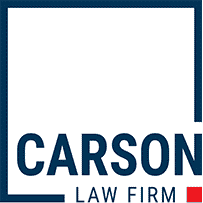
Fairness in Dividing the Founders: Understanding Startup Ownership
One of the questions I wish clients would ask more is whether their division of ownership is a fair one. Most owners, in their fairness calculation, apply the following formula:
100% ÷ number of founders
This advanced calculus may appear fair and equitable, but the reality is that it ignores many dimensions of the co-founder relationship.
A great read on the subject from Frank Demmler, a professor at CMU who helps startups get going.
In a nutshell, the “founder’s pie” is made of many considerations. Let’s start with the accountant’s version first, then move on to the intangibles.
A founder may contribute to a startup in the following ways:
- Initial capital (cash or property)
- A promise to contribute additional capital later (called a capital call)
- An agreement to work for the company without a salary (sweat equity)
- Intangible capital (also known as goodwill, more on this later)
We can pretty easily calculate the values of items 1-3, but #4 is the tricky one. It is also, unfortunately, the asset most frequently contributed by startup founders.
Roughly speaking, intangible capital can be broken into five categories:
- Idea
- Business knowledge (general)
- Domain expertise
- Commitment and risk
- Responsibilities
Demmler recommends that a team get together and (1) assign relative weights to each category, signifying how important they are to the team, and (2) assigning a number for each founder’s relative contribution in that category. A chart of this concept might look like this:

The idea and commitment/risk were obviously the most important to this team, so they received weights of 7. Note that these weights don’t necessarily have to add up to any given number — they could all be 10 or all be 1, but the result would be the same if we set them all at 1 or all at 10.
From there, we assign the relative contributions of each founder and multiply out the total to get the total percentage split.

Note that the cash/property items discussed above are more or less rolled into the “commitment & risk” category. If the relative weights of the other categories are low and it’s all about the money, then perhaps it is wiser to determine the percentage split by the relative contribution of investments.
In a situation where there’s a combination of both intangible contributions and cash/property, the founders have myriad options for structuring the deal so as to essentially remove the contributed cash from the calculus — for instance, the “money partner” can take back a loan from the company paid from the company’s free cash flow until it is settled, or take preferred stock with a preferred return of the companies gross income or net profit. Contact us at Carson Law for assistance in structuring your startup ownership.

